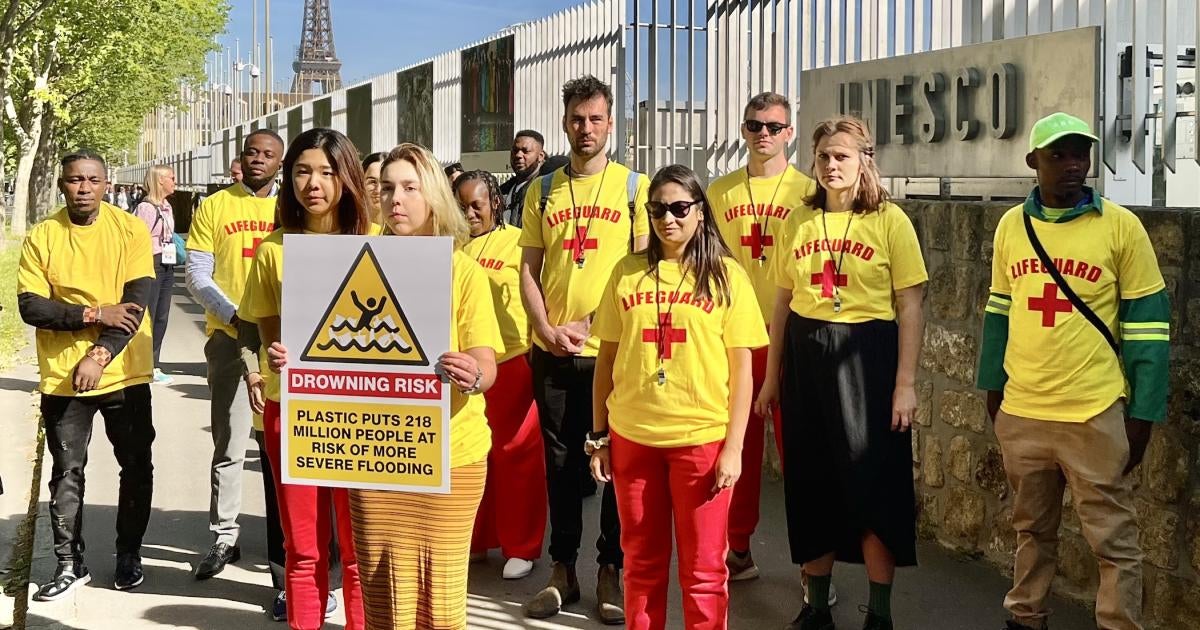Role of Fossil Fuels Absent at Plastics Treaty Negotiations
The second round of the United Nations Environment Programme’s plastics treaty negotiations concluded last Friday in Paris.

Countries agreed to a mandate for a “zero draft” of the treaty to be prepared by the negotiating committee’s chair prior to the next session in Nairobi this November. However, governments still remained divided on key terms and obligations, with some even blocking the possibility of a meaningful plastics treaty. Last week’s session was attended by 169 UN member states and 900 civil society and industry representatives. Countries with vested interests in the fossil fuel industries, including China, Russia, Saudi Arabia, and the United Arab Emirates – the latter of which is hosting the COP28 Climate Summit this November – did not support reducing plastic production as a core obligation in the treaty, a measure that would be key to resolving the global plastic pollution crisis.
The plastic lifecycle begins with oil and gas extraction; however, discussions about the role of fossil fuels and the industry’s harms were largely absent. This is regrettable.
The production, use, and disposal of plastics contribute to the climate crisis and can cause significant harm to the rights of people around the world. Improving waste removal and recycling alone will not end the human rights harm of plastic pollution. Human Rights Watch has documented the harmful impacts of plastic recycling in Turkey, which put people at risk of developing life-long health conditions, including cancer and harm to the reproductive system.
The world is drowning in plastics: Of the more than 400 million tonnes produced globally every year, 99 percent is made from fossil fuels.
The industry is projected to increasingly rely on plastic production for revenue as the movement to end fossil fuel use advances. For the new plastics treaty to deliver a sustainable solution to end pollution, the role of fossil fuels should be addressed in the zero draft.
The new treaty should emphasize rights-respecting measures to end plastic pollution that include drastically cutting production and ending petrochemical subsidies.
The treaty should specifically reference the right to a clean, healthy, and safe environment, as well as Paris Agreement commitments. As the treaty’s 2024 deadline fast approaches, the race to end plastic pollution and prevent a climate catastrophe requires every government to act urgently and commit to more ambitious actions.
Read the full article at the original website
References:
- https://www.unep.org/news-and-stories/press-release/inc-chair-prepare-zero-draft-international-agreement-plastic
- https://www.hrw.org/news/2023/02/15/uae-plans-fossil-fuel-friendly-cop28
- https://www.hrw.org/news/2023/06/05/cop28-climate-talks-should-ensure-fossil-fuel-phaseout
- https://www.hrw.org/news/2022/11/23/plastics-and-human-rights-questions-and-answers
- https://www.hrw.org/report/2022/09/21/its-if-theyre-poisoning-us/health-impacts-plastic-recycling-turkey
- https://www.unep.org/resources/report/drowning-plastics-marine-litter-and-plastic-waste-vital-graphics
- https://theconversation.com/oil-companies-are-ploughing-money-into-fossil-fuelled-plastics-production-at-a-record-rate-new-research-169690
- https://www.hrw.org/news/2022/04/29/human-rights-agenda-ending-fossil-fuels
- https://www.hrw.org/news/2023/05/15/plastics-treaty-phase-out-fossil-fuels-end-pollution
- https://www.pacificenvironment.org/press-releases/new-report-calls-for-at-least-75-reduction-of-plastics-by-2050-reveals-dire-connection-between-plastic-and-climate/
- https://unfccc.int/files/essential_background/convention/application/pdf/english_paris_agreement.pdf
- https://wedocs.unep.org/xmlui/bitstream/handle/20.500.11822/39764/END%20PLASTIC%20POLLUTION%20-%20TOWARDS%20AN%20INTERNATIONAL%20LEGALLY%20BINDING%20INSTRUMENT%20-%20English.pdf?sequence=1&isAllowed=y
- https://www.ipcc.ch/report/ar6/syr/downloads/report/IPCC_AR6_SYR_SPM.pdf
